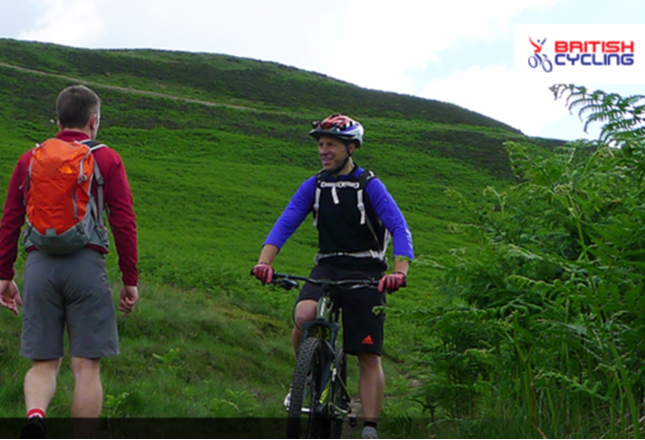
It is currently illegal for people on bikes to access the majority of the countryside in England and Wales due to public access and rights of way laws. At present, less than a third of the 140,000 miles of public paths are accessible to cyclists. This is also limited access to the three million acres of Open Access Land or the 2,800 miles of newly created coastal access for cyclists when compared to walkers who are free to use all of this land.
British Cycling commissioned a poll by YouGov which has revealed almost two-thirds of people do not know that they are unable to cycle on the majority of public paths in the countryside. The majority of people also believe they should be allowed to cycle on them.
The letters state that there is a demand for more countryside cycling with half of the survey’s respondents stating they would like to cycle there more.
The survey also revealed that young people are the least likely to know where they can cycle and are also the most likely to support greater public access.
British Cycling’s chief executive, Ian Drake, said:
“England and Wales is packed with outstanding countryside on millions of people’s doorsteps but, due to outdated and confusing rights of way legislation, much of it is only open to you if you choose to walk.
“We know that many people will simply not consider cycling unless they can do it on a traffic-free route. While national and local government work on putting cycle lanes in place across our towns and cities, countryside paths are fantastic, free alternatives that could be enjoyed responsibly by mountain bikers and families alike.
“At a time when obesity levels and air pollution in our cities is at an all-time high, we call on the government to act to make sure that the massive opportunity to get active in the countryside is not wasted.”
In Scotland, the 2003 Scottish Land Reform Act, brought in in 2003, has proven that responsible access by people on bikes is sustainable, manageable and highly beneficial to tourism, health and the economy. Research has shown that mountain biking grew by up to 10% from 2011 to 2014 and is worth £49.5 million per year to the Scottish economy.
The Alliance has signed today’s letter with the belief that a version of the responsible access model should be explored for England and Wales.
Scottish Cycling, Welsh Cycling, Welsh Sports Association, the British Mountaineering Council, the British Horse Society, Cycling UK and the Bicycle Association have also signed the letter alongside Olympic gold medallist Chris Boardman.
This afternoon, the Chancellor delivered her Budget speech to Parliament, outlining decisions on tax and spending.
Read moreAhead of the Chancellor’s Budget statement on 26 November, we take a look a look at the key areas to be aware of and the work the Alliance has been doing lobbying on behalf of members.
Read moreGovernment has today formally launched a consultation on reforming the role of statutory consultees in the planning system. The consultation runs for eight weeks, closing on 13 January 2026.
Read moreJoining the Sport and Recreation Alliance is pretty simple, but worthwhile!
Register now